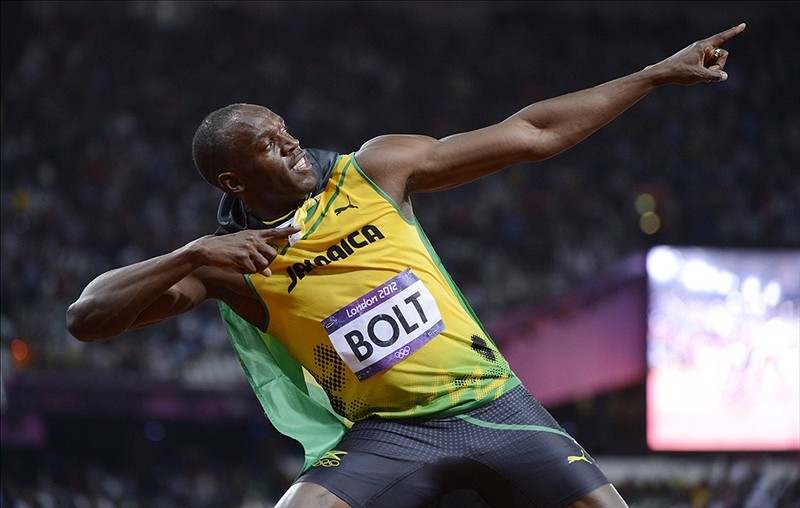Usain Bolt is arguably the most famous living sportsman on the planet right now, a man who has become, in his own words, a legend; his conquests in London in the 100m, 200m and 4x100m relays have once again left the world delirious for the Jamaican sprinting phenomenon. His confident swagger rarely leaves one with a sense of arrogance; such is his affable, relaxed manner on and off the track. ‘Usain Bolt: The Fastest Man Alive’ attempts to expand on his character and explores the rise of this global superstar.
Released before his exploits in London 2012, the film starts and finishes with his now infamous false start at the 2011 World Championships in Daegu, South Korea. His disqualification is fascinating, for it disarmed Bolt of his sheen of invincibility which he had built upon in Beijing and Berlin. Like any good biographical documentary, we are given exclusive access to Bolt’s feelings after the race. Whilst he claims to be happy for his team-mate and training partner Yohan Blake, his strained expression belies a deep frustration and anger, unusual for a man who dances all the way up to the starting blocks and confesses that ‘it’s all fun and games’.
The film charts his rise through the junior ranks and his obvious potential-world junior champion at the age of 15 years old, it is interesting to watch how his technique has developed from flailing limbs and a leaning-back head to a composed, controlled running machine. Many of those who tuned in to watch Bolt win the 100m two weeks ago will have never seen his early elimination in Athens 2004.
The rise to superstardom for Bolt was so sudden, and for those who do not follow athletics throughout the calendar season the Beijing games was the first time they had seen him run. The archives of film are perhaps the most rewarding part of this documentary, for there is no real enigma to Bolt himself. Bolt is no Michael Johnson; no pearls of wisdom or particularly insightful comments, he’s ‘more of a play station guy, rather than a reader’. It is his honesty and simple-minded approach to what is ultimately an emotionally rigorous job which is most interesting. The collective disappointment felt by fans, his coach and family after his disqualification in Daegu displays the immense pressures which Bolt works under and the less tangible difficulties of what is, on the outside, a very simple sport.
The idea of meeting any of my sporting heroes has never appealed to me; the fear of discovering that they are in fact, just very good at the sport, has always kept me away from autographs and photographs. I’d much rather just watch them do what they do best, and I think that is part of the reason for why I dislike this film. The documentary itself is well made and it does as much as it can to delve into the ‘other side’ of the man, yet I fear that there isn’t that much more to this great athlete. He just seems to be a thoroughly nice man who is simply faster than everyone else. He has single-handedly revived a sport that was on the verge of drug-induced calamity and brought a youthful exuberance to the starting block. Isn’t that good enough?
Written By Jack McSweeny
TweetMe: @Jack_McSweeney




